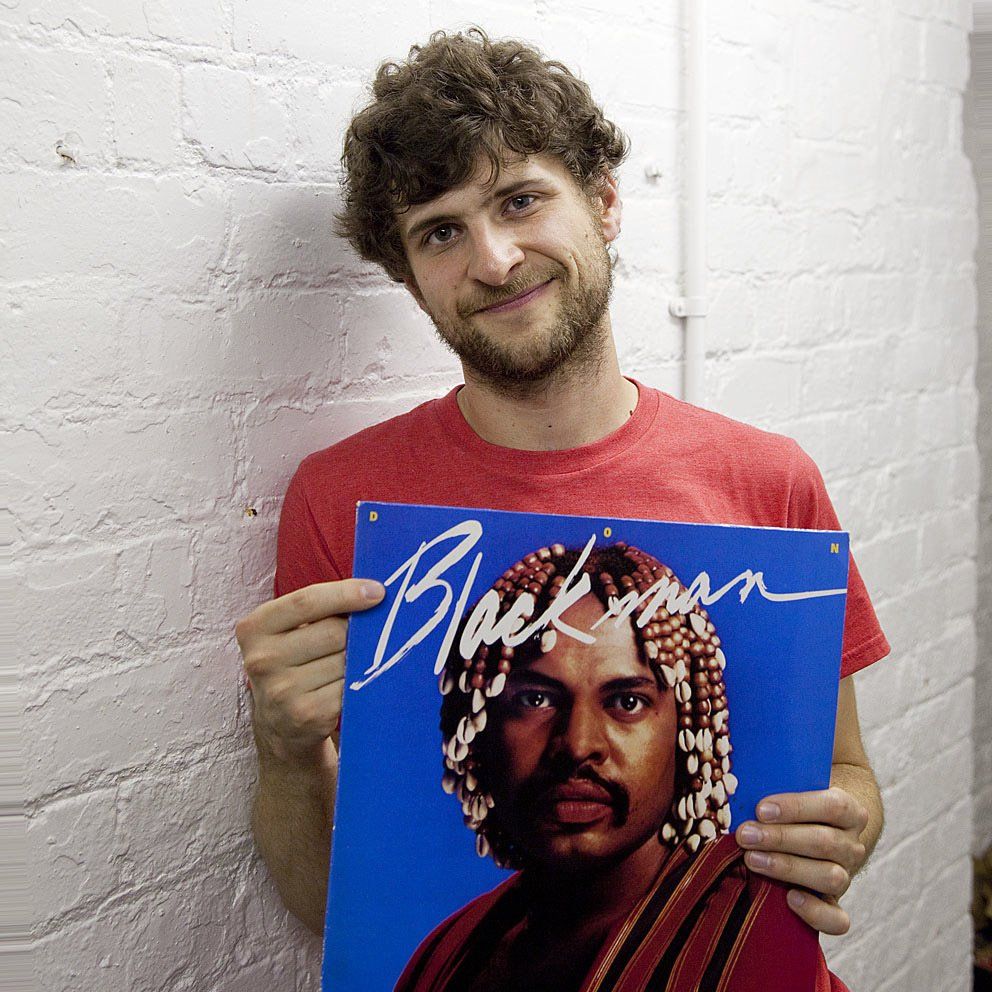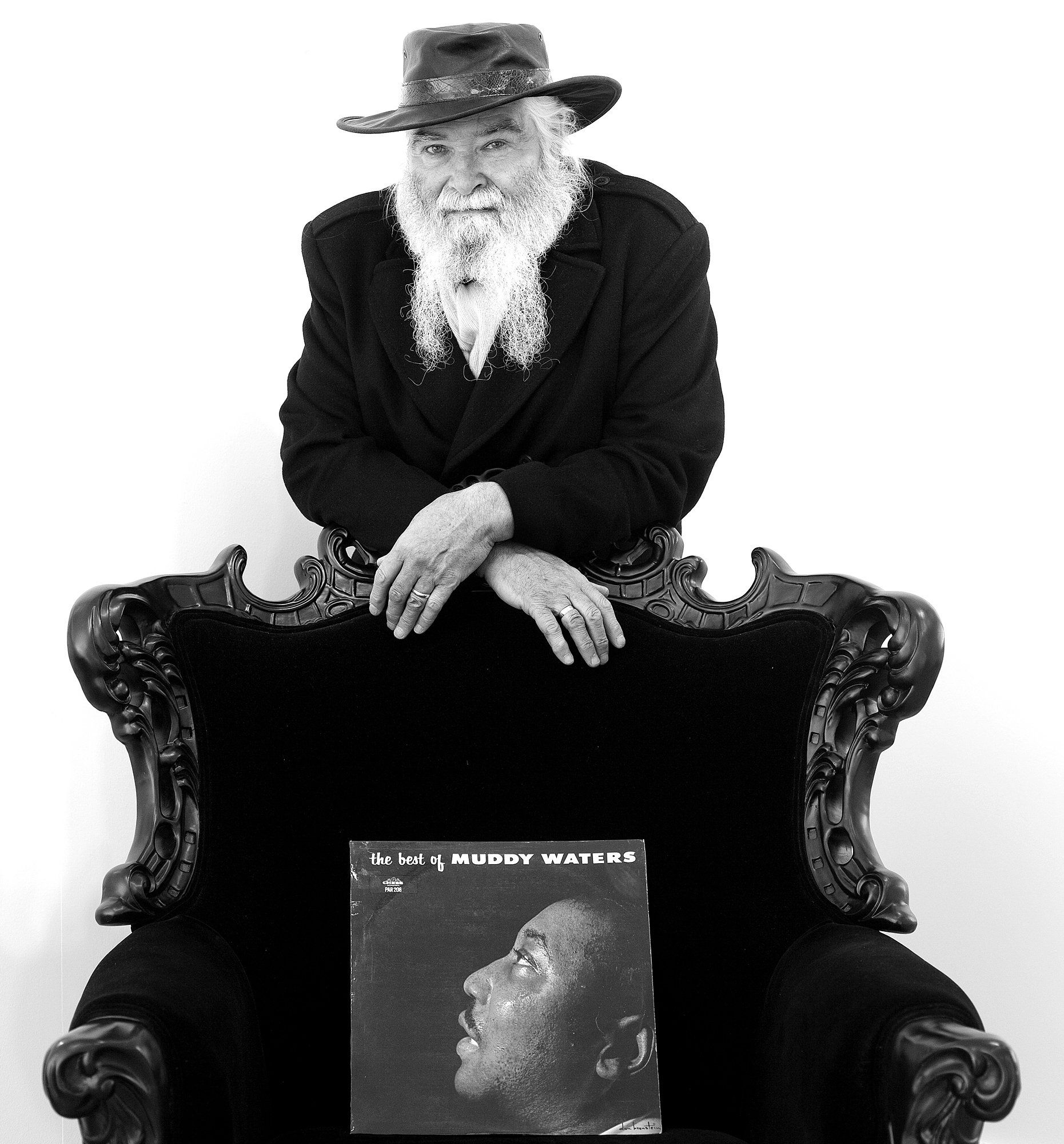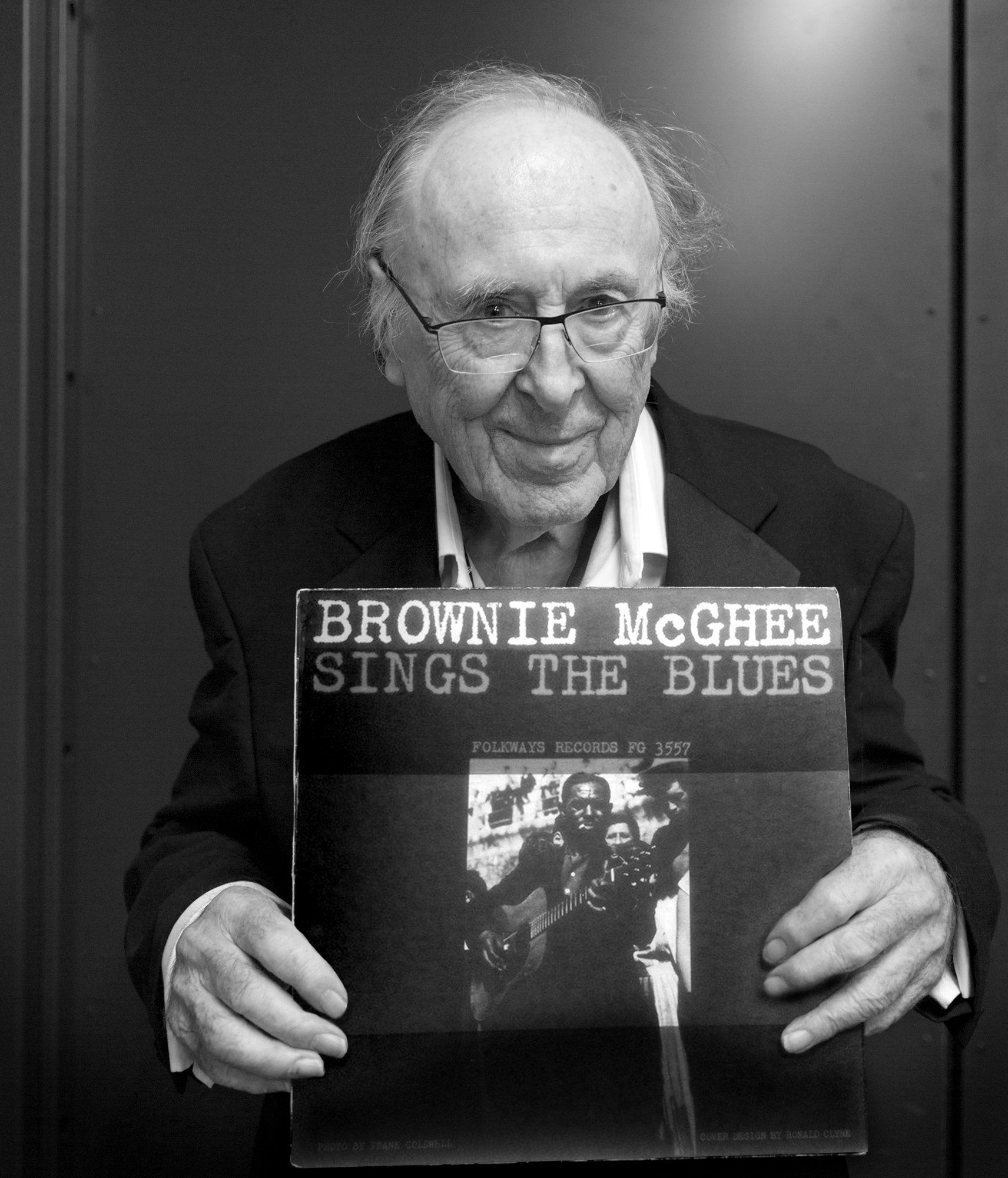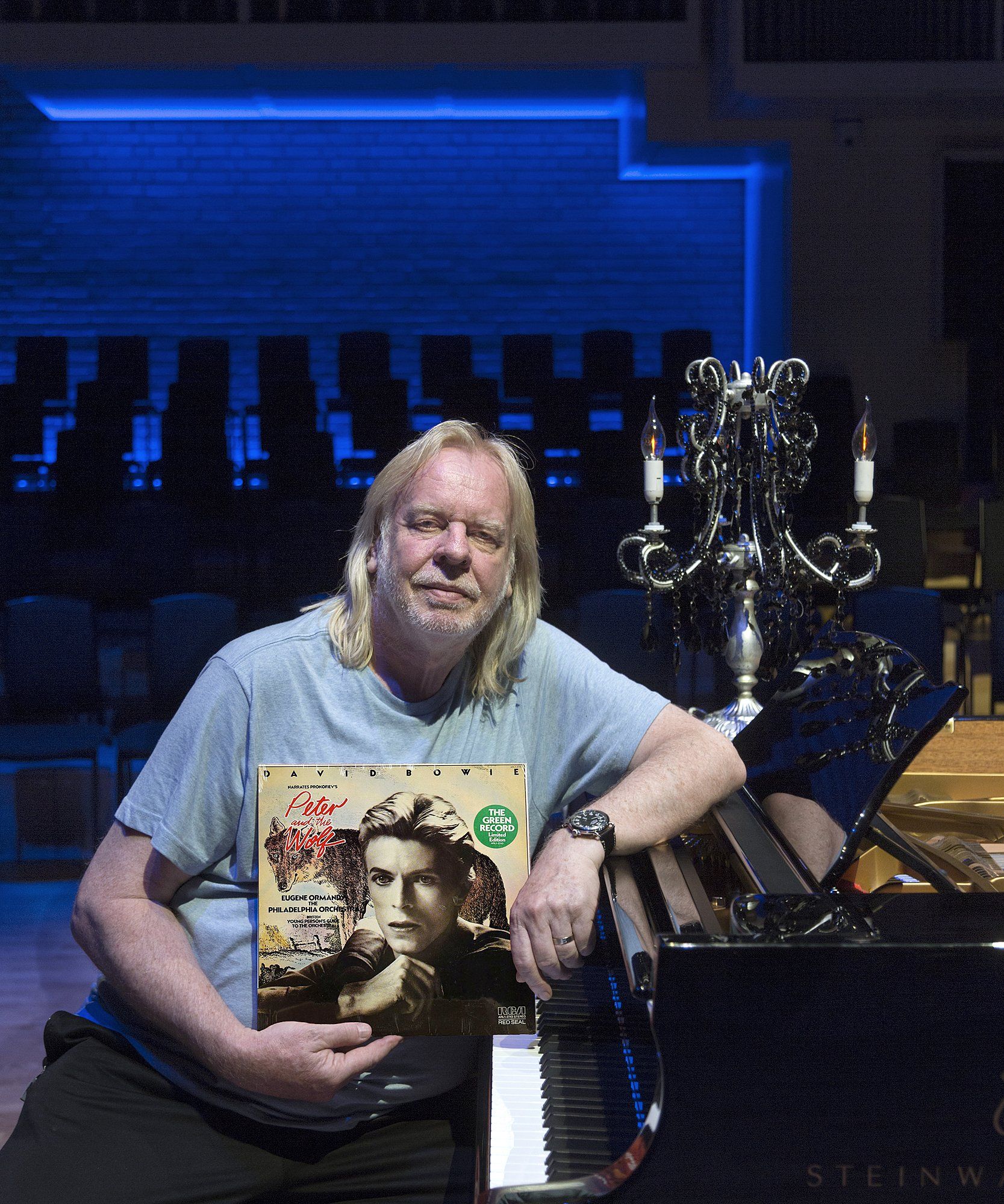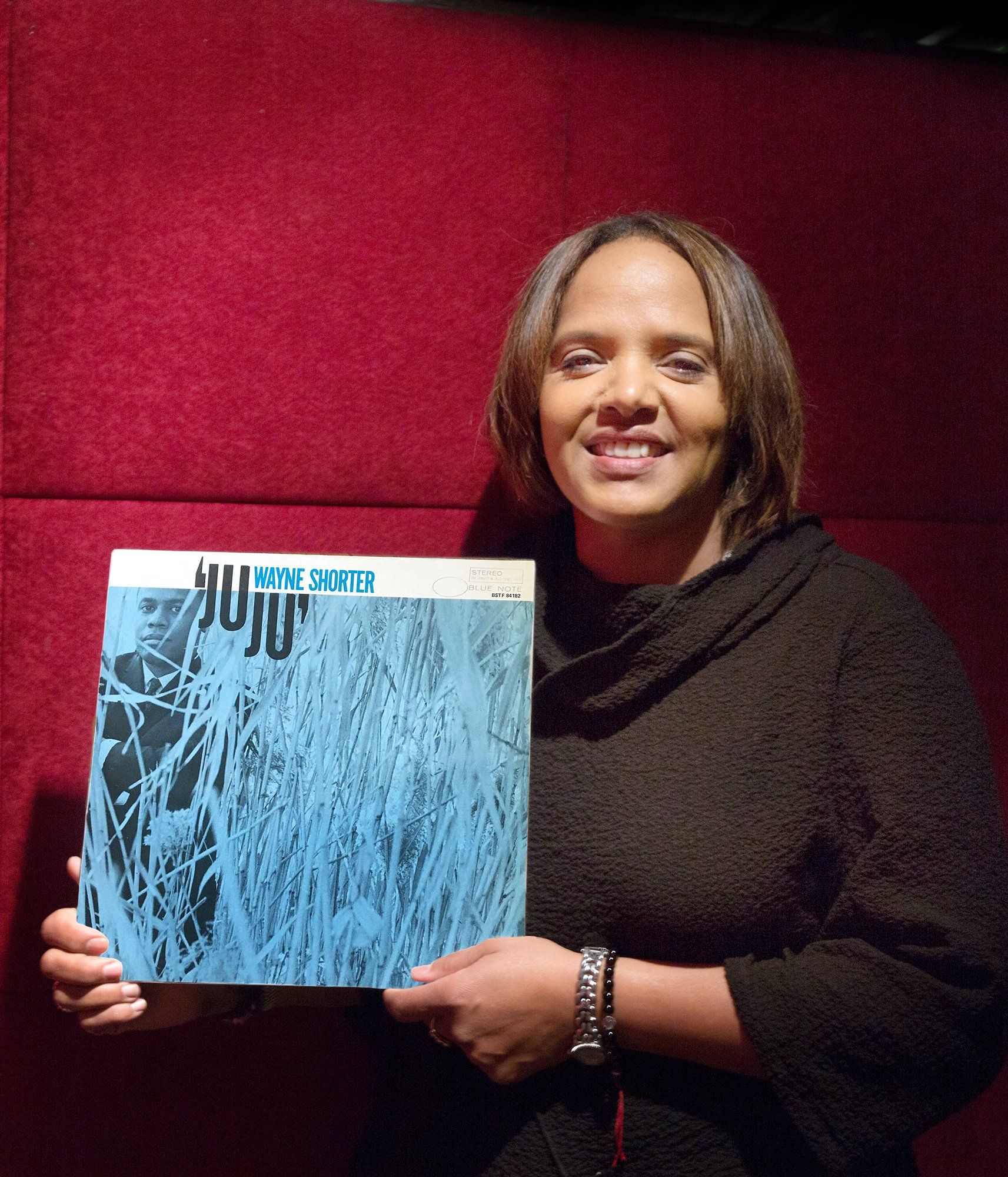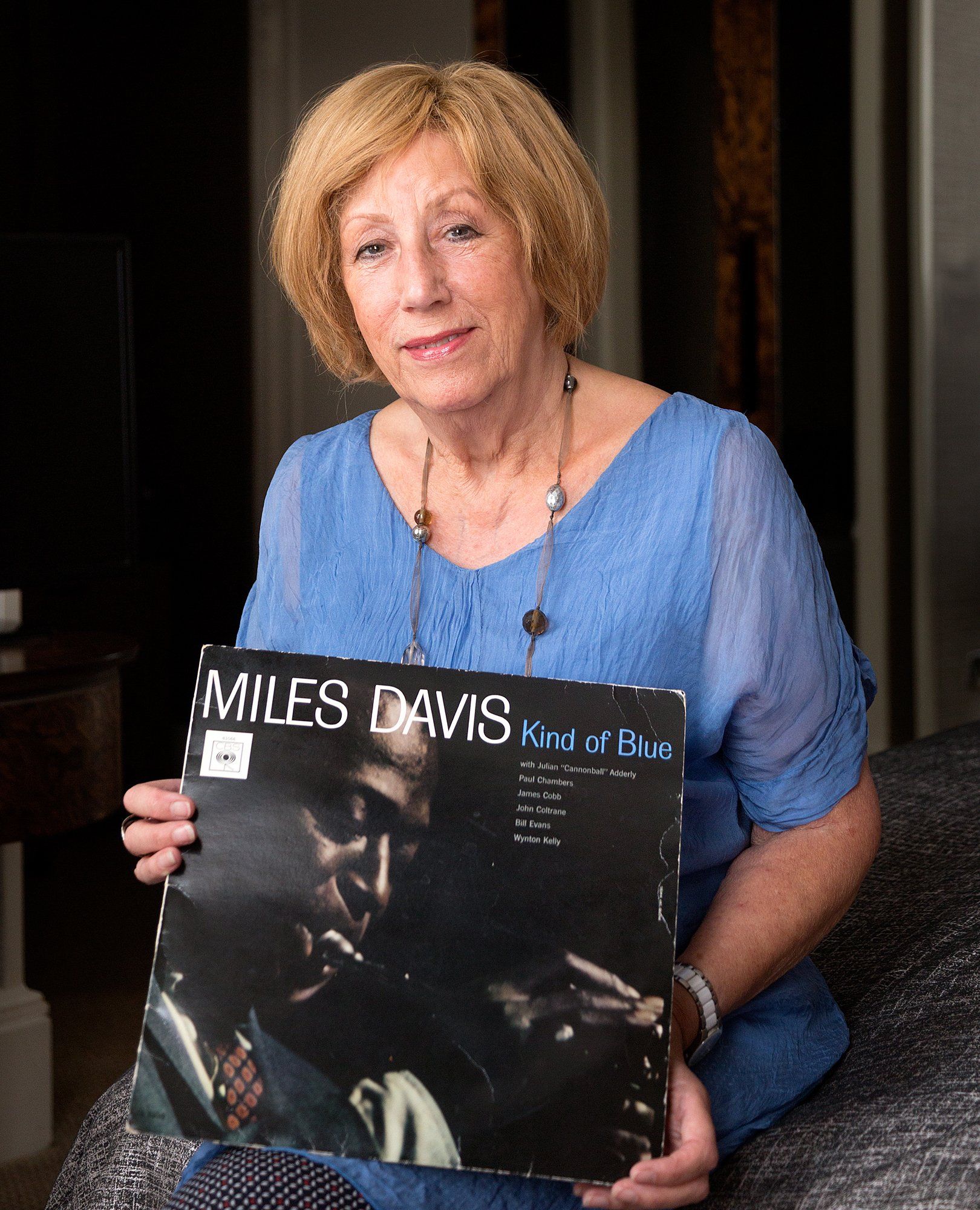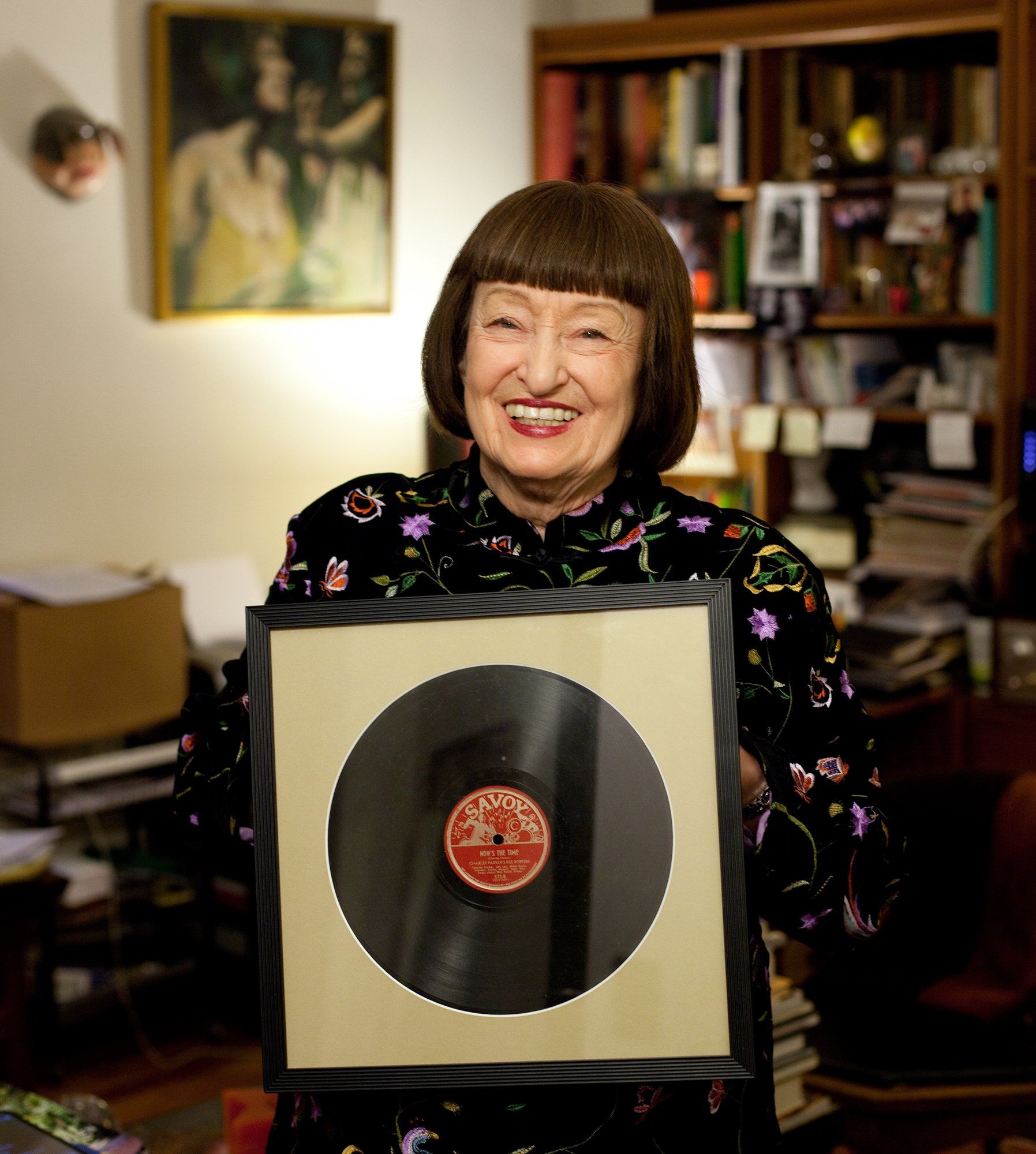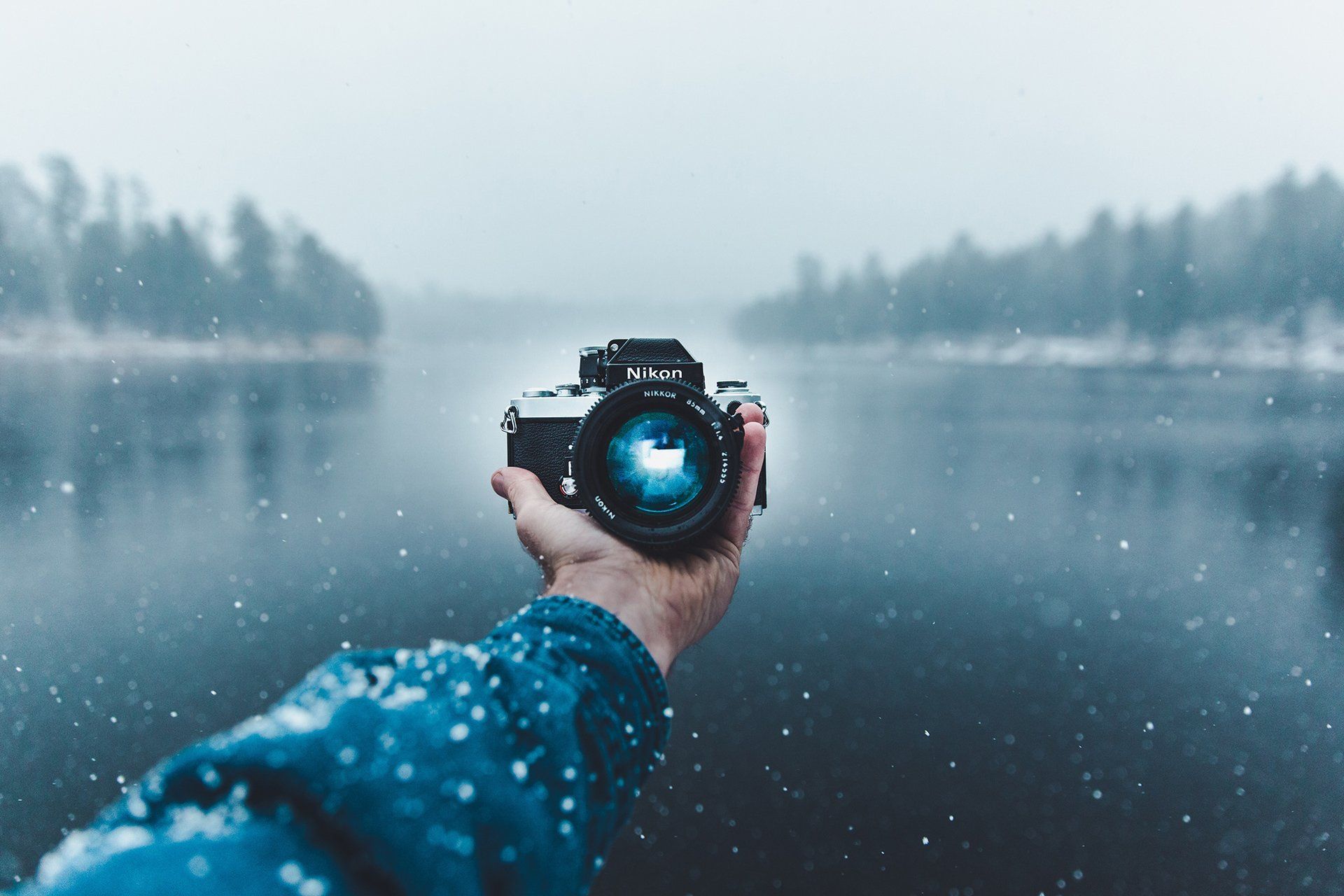Campaign title
belongs here
Campaign title
belongs here
Write a few words about the campaign. Keep things short and sweet and encourage visitors to click, call or learn more.
O n e L P - ƒeatured
M I C H A E L L E A G U E
Musician
Band on the Wall, Manchester, England, 2013
O N E L P
O N E L P
Don Blackman: 'Don Blackman'
It is special for a couple of reasons. When I was asked to pick my favourite record I sat at dinner – Mike Chadwick told me about it – and I sat at dinner for about an hour trying to think of it and I couldn’t come up with anything - like my singularly favourite record.
So I decided to pick like a record that was one of my favourite somethings.
So this is my favourite bass record, actually, as a bass player. I think every track, the bass playing and the key bass playing to me is like absolutely perfect, like everything that I ever have wanted to be as a bass player, you know is on this record, both key bass and electric bass.
The other reason why it is special to me because this dude is the mentor of my mentor, Bernard Wright.
So Bernard is the guy who kind of totally shaped the way that I think about music and play and Don Blackman was Bernard’s mentor, growing up together in Jamaica, Queens.
So I feel that there is kind of like, you know, maybe a little bit of that kind of lineage sentimentality, I guess, you know, about it but yeah absolutely, just an incredible record from back to front - you got it!
Don Blackman: 'Don Blackman' released 1982
Michael League: Snarky Puppy
V I C T O R B R O X
Musician
Richard Goodall Gallery, Manchester, England, 2010
O N E L P
O N E L P
Muddy Waters: 'The Best of Muddy Waters'
'
"This album is called ‘The Best of Muddy Waters’ and it’s the seminal Chicago blues album with contributions by most of the people of note and are actually from Mississippi who had made the journey to Chicago. So you have the pure Mississippi blues in electric form for the first time. Muddy Water on slide guitar and vocals, Otis Span on piano, Little Walter on harmonica and of course Willie Dixon on bass amongst many other fine musicians - but they are literally the best in their category in my opinion and it’s a splendid example of working together – in a way that is so relaxed and so natural absolutely disciplined in a way that no revival band has ever been able to approach in my opinion - sheer quality, and this has all the classic tracks.
I played with Willie Dixon in Hollywood, I went there to represent Europe in the Little Walter Memorial Concert.
All the surviving members of the great Muddy Waters and Little Walter bands were there – The Aces and The Dukes and quite a lot of other people like Lowell Fulson and Lee Oskar who was the harmonica player with War who invented a completely different form of harmonica playing and everybody connected with blues – the last remaining time and they’re all dead now apart from Lee Oscar, that was back in 1990.
I went for two weeks and stayed for nearly a year.”
C H R I S B A R B E R
Musician
The Sage, Gateshead, England, 2018
O N E L P
O N E L P
'
It is special for a couple of reasons. When I was asked to pick my favourite record I sat at dinner – Mike Chadwick told me about it – and I sat at dinner for about an hour trying to think of it and I couldn’t come up with anything - like my singularly favourite record.
So I decided to pick like a record that was one of my favourite somethings.
So this is my favourite bass record, actually, as a bass player. I think every track, the bass playing and the key bass playing to me is like absolutely perfect, like everything that I ever have wanted to be as a bass player, you know is on this record, both key bass and electric bass.
The other reason why it is special to me because this dude is the mentor of my mentor, Bernard Wright.
So Bernard is the guy who kind of totally shaped the way that I think about music and play and Don Blackman was Bernard’s mentor, growing up together in Jamaica, Queens.
So I feel that there is kind of like, you know, maybe a little bit of that kind of lineage sentimentality, I guess, you know, about it but yeah absolutely, just an incredible record from back to front - you got it!
Don Blackman: 'Don Blackman' released 1982
Michael League: Snarky Puppy
R I C K M A N W A K E M A N
Musician
Royal Northen College of Music, Manchester, England, 2017
O N E L P
O N E L P
Prokoviev: 'Peter and The Wolf' narrated by David Bowie
"It’s Prokofiev’s Peter and the Wolf – actually also on the album is Benjamin Britten’s 'The Young Person’s Guide to the Orchestra' as well.
When I was about 9 years old my father took me to see a performance of Peter and the Wolf. I just thought it was so magical because here’s somebody telling a story to music and I just was in raptures. It was the actual inspiration for me all my life to want do stories to music which is what I went on and did – Journey to the Centre of the Earth and King Arthur * and those kind of albums. It was purely thanks to that trip to see Peter and The Wolf.
I always thought Prokofiev was a total and utter genius and fell in love with all his music from that day on. The interesting thing is this particular album has David Bowie narrating it – I mean I’ve got so many versions of different people narrating it, but because of my close relationship with David working with him, being a friend and he does it extraordinary well – he really does do it well. He has almost the perfect voice for doing it. To me he even beats Peter Ustinov’s version which was pretty sensational which I’ve got and some appalling versions like Barry Humphries!
What’s interesting about this particular version with David Bowie is – as I said also on the record is Benjamin Britten’s Young Person’s Guide to The Orchestra – which I’ve narrated, I’ve done it with a couple of orchestras.
But what’s really nice for me as well is I live in Norfolk only about 35 minutes from The Red House where Benjamin Britten was, so I visit there a lot. I know them all there incredibly well, in fact I’ve modelled my music room – outside in an old rebuilt carriage (store) – almost identical to Ben’s room – Benjamin Britten’s room. I’ve been lucky enough to meet some of his students and people who worked in choirs and things and that with him – that’s really nice.
And so to have this particular album that has both the piece of music that probably inspired me to compose in later years, to have David Bowie doing the narration – such a great friend and having worked with him on so much stuff, and then as a bonus track having 'The Young Person’s Guide to the Orchestra,' living so close (to Britten’s Red House) – and some of Britten’s choral work – great influence – to me it’s the perfect album."
Prokofiev: 'Peter and The Wolf' - narrated by David Bowie, released 1978
T E R R I L Y N E C A R R I N G T O N
Musician
Jazz Standard, New York City, 2018
O N E L P
O N E L P
Wayne Shorter: 'JuJu'
“There’s so many of course, I guess one that just came to my mind is “JuJu” by Wayne Shorter - there are so many amazing songs on that record .. on all of his records. But for the classic Wayne Shorter records, I love that one. And ‘Infant Eyes’ (on "Speak No Evil") for me, that’s one of the most beautiful songs ever written. Also love “Deluge” and “JuJu” and ”Twelve More Bars to Go”. All of them – it is such a strong collection of songs and the playing is just unbelievable. Wayne’s sound on “Infant Eyes” (on “Speak No Evil”) is so special.
I mean it’s easy to fall in love with Wayne in all of his different incarnations, but the sound that he gets when he’s playing a song written for his daughter when she was very young or recently born… you can hear that in that melody. That album really captured an incredible moment in Wayne’s career, it’s just amazing.”
I mean it’s easy to fall in love with Wayne in all of his different incarnations, but the sound that he gets when he’s playing a song written for his daughter when she was very young or recently born… you can hear that in that melody. That album really captured an incredible moment in Wayne’s career, it’s just amazing.”
Wayne Shorter: 'JuJu'
released 1965
Wayne Shorter: "Speak No Evil" released 1966
Terri Lyne Carrington
Wayne Shorter: "Speak No Evil" released 1966
Terri Lyne Carrington
N O R M A W I N S T O N E
Musician
Midland Hotel, Manchester, England, 2018
O N E L P
O N E L P
Miles Davis: 'Kind of Blue'
““Well, it's Miles Davis “Kind of Blue”, I'm sure loads of people chose this one - I had to chose it because it had a profound effect on me.
I don't know how many other albums I'd bought before then but I think the first one that I ever bought and I saved up for when I was at school was “Ella and Louis with the Oscar Peterson Trio.”
And I was also very affected by Dave Brubeck’s quartet with Paul Desmond and I found that I was listening to the solos, I was learning the solos, I didn't realise they were improvised because Paul Desmond was so clear in the way he played and you could actually copy it.
But, I think I joined a club and we saved up so much a week and then this guy would come round and he'd say 'Well this albums new ... and this ones new .. and I can order it for you' , and he said 'there's a new one by Miles Davis, John Coltrane “Kind of Blue” and I thought Oh have to have that!
And it was so special because it was the first time, I mean I've collected records of course by singers .. of course Sinatra I had “Only the Lonely” you know ... I was very effected by that too but of course that was normal he was a singer and was the best .. I think the best singer of my generation singing the kind of songs he sang.
But this was a jazz record and it made me feel that ... I was singing at the time .. and it just made me feel that there was another path that I'd quite like to take with the voice because everything they played was modal.
So although I'd listened to Charlie Parker and I'd loved it - I love bebop, but to sing I thought this style of music offered more space for the voice. And I had no idea how I would be able to use the voice with any... I didn't know any musicians that played this kind of stuff but I knew there must be some.
I thought well maybe you could write words to some of these kinds of songs because I couldn't think how the singer could be involved in a more equal way you know rather than just singing the song and then everybody else doing what I thought at the time was the interesting stuff and then the singer would sing the tune again.
Of course I've come to realise that actually the melody and the tune is the really interesting stuff (laughs). But it was just that it was different to anything I'd heard in the way it affected me.. it made me start thinking about the voice, I wouldn't say the voice as an instrument but how the voice could be used as a sound, I mean Miles was very vocal and he liked singers anyway apparently - well certain singers. And his playing, his trumpet sound, was like a voice and also his solos were fairly singable.
I listened and I played this album so much. I've still got it but it must be nearly worn out because I just played it over and over and I started to learn his solos. And in fact I think my mum learned his solos as well because she couldn't escape ( laughs) we were in a little council house you know .. two up two down ...and so if you played anything in the house everybody heard it and my mum had very good ears and I would hear sometimes washing up and she'd be whistling a bit of Miles Davis. (Laughs). It was a very serious thing when I got this album and it just had .. it just made me think about what kind of music I really wanted to do. Of course I didn't completely follow that path but I found that I finished up doing something that... I mean I hadn't imagined what it could be I could do but I finished up singing wordless solos and not trying to sound like a horn I think people often think .. They say 'which instrument are you thinking of' , well I'm not really thinking of any instrument I'm thinking of the voice. But of course I've worked a lot with standing next to Kenny Wheeler so I think his sound as well had a terrific effect on me. The trumpet again - you know people don't always think of trumpet and voice as a blending thing but I found that I wanted to blend with Kenny's sound. I like that sound of trumpet or flugel..
But yeah it all started with 'Kind of Blue'."
I don't know how many other albums I'd bought before then but I think the first one that I ever bought and I saved up for when I was at school was “Ella and Louis with the Oscar Peterson Trio.”
And I was also very affected by Dave Brubeck’s quartet with Paul Desmond and I found that I was listening to the solos, I was learning the solos, I didn't realise they were improvised because Paul Desmond was so clear in the way he played and you could actually copy it.
But, I think I joined a club and we saved up so much a week and then this guy would come round and he'd say 'Well this albums new ... and this ones new .. and I can order it for you' , and he said 'there's a new one by Miles Davis, John Coltrane “Kind of Blue” and I thought Oh have to have that!
And it was so special because it was the first time, I mean I've collected records of course by singers .. of course Sinatra I had “Only the Lonely” you know ... I was very effected by that too but of course that was normal he was a singer and was the best .. I think the best singer of my generation singing the kind of songs he sang.
But this was a jazz record and it made me feel that ... I was singing at the time .. and it just made me feel that there was another path that I'd quite like to take with the voice because everything they played was modal.
So although I'd listened to Charlie Parker and I'd loved it - I love bebop, but to sing I thought this style of music offered more space for the voice. And I had no idea how I would be able to use the voice with any... I didn't know any musicians that played this kind of stuff but I knew there must be some.
I thought well maybe you could write words to some of these kinds of songs because I couldn't think how the singer could be involved in a more equal way you know rather than just singing the song and then everybody else doing what I thought at the time was the interesting stuff and then the singer would sing the tune again.
Of course I've come to realise that actually the melody and the tune is the really interesting stuff (laughs). But it was just that it was different to anything I'd heard in the way it affected me.. it made me start thinking about the voice, I wouldn't say the voice as an instrument but how the voice could be used as a sound, I mean Miles was very vocal and he liked singers anyway apparently - well certain singers. And his playing, his trumpet sound, was like a voice and also his solos were fairly singable.
I listened and I played this album so much. I've still got it but it must be nearly worn out because I just played it over and over and I started to learn his solos. And in fact I think my mum learned his solos as well because she couldn't escape ( laughs) we were in a little council house you know .. two up two down ...and so if you played anything in the house everybody heard it and my mum had very good ears and I would hear sometimes washing up and she'd be whistling a bit of Miles Davis. (Laughs). It was a very serious thing when I got this album and it just had .. it just made me think about what kind of music I really wanted to do. Of course I didn't completely follow that path but I found that I finished up doing something that... I mean I hadn't imagined what it could be I could do but I finished up singing wordless solos and not trying to sound like a horn I think people often think .. They say 'which instrument are you thinking of' , well I'm not really thinking of any instrument I'm thinking of the voice. But of course I've worked a lot with standing next to Kenny Wheeler so I think his sound as well had a terrific effect on me. The trumpet again - you know people don't always think of trumpet and voice as a blending thing but I found that I wanted to blend with Kenny's sound. I like that sound of trumpet or flugel..
But yeah it all started with 'Kind of Blue'."
William
- "That's lovely - absolutely, thank you so much."
Norma - "Good - is that enough?" (smiling)
Norma - "Good - is that enough?" (smiling)
Miles Davis: "Kind of Blue'
released 1959
Save time
Save time
Earn More
Earn More
Grow Faster
Grow Faster
Friendly support
Friendly support
Give Visitors Reasons to Join
Give Visitors Reasons to Join
Tell visitors a bit more about your campaign and explain why they should join. Is this a once in a lifetime opportunity? A special event with influential speakers? Or maybe there is limited space and you want visitors to know so they register now to secure their spot.
S H E I L A J O R D A N
Musician
Photographed at home, New York City, 2014
O N E L P
O N E L P
Charlie Parker:' Now's The Time'
“This is the first jazz recording I ever heard, it’s not even bebop! It’s a rebopper! ‘Charlie Parker’s Reboppers.' There’s a whole story behind this record.
Charlie Parker alto, Miles Davis, trumpet, Curley Russell bass and - who’s on piano?
Hen Gates that was Dizzy – he couldn’t give his real name – and Max Roach on drums.
So it was Curly (Russell), oh my God – can you believe that? So on the other side is "Bille’s Bounce", same personnel.
I always sang as a little kid, I never knew what kind of music I wanted to sing and then after I moved back to Detroit to be with my mother and go to high school, there was a jukebox downstairs from my school.
I was always playing music there, you know, putting nickels in.
So I knew most of the artists and their songs that made them famous – not that I was tired of hearing – but I was looking for something else and I saw this. I saw this and I said ‘Oh – Charlie Parker and His ReBoppers, I wonder what that is?’
So I put my nickel in – four or five notes and I thought – and oh my God, this is the music I’ll dedicate my life to.
Whether I sing it, teach it, support it – whatever, it doesn’t matter, I’ll just dedicate my life to that music.
I’d finally found the music that I wanted to do where I felt I could get into and really mean it.
And I’ll tell you, I got goose bumps when I first heard the first four notes, I was like whoa – it was almost like being elevated you know.
That was ‘Now’s The Time’. And the funny thing about this record that’s so beautifully framed now is I was doing a concert maybe two summers ago and there was a wonderful poet on before us, his name is Billy Collins.
He recited his poetry and afterwards it was going to be me and Cameron Brown the bass player, that’s a duo I have.
I’ve been doing bass and voice since the fifties.
I’m the originator of bass and voice – not to brag – but to say hey to singers and bass players ‘you know can do music this way too. And there are people doing it now – which is great.
This was an outdoor concert and so we were in this big house where we got dressed, got ready and relaxed until we went on.
It was just Billy Collins reciting his poetry and me and Cam.
So my friend, (Peter) - this drummer and a wonderful artist, he knows I’m a Bird freak - and he draws birds – all kinds of birds he’s done - they’re beautiful he sends them to me or gives them to me.
It was Peter, I said ‘Peter it’s good to see you man’
He said ‘ Yeah I have a present for you – I said really?
I said ‘what is it?’ He said ‘yeah open it up’
And so I opened it up – it was this, all framed beautifully.
I got so emotional and I thought oh my God - I don’t think I can go up there and sing right now!
But I waited a few minutes, I hugged him and kissed him and thanked him.
I said ‘Oh my God this is the most wonderful gift I’ve ever been given - except of course the music and my daughter (laughs).
So that’s the story of that record!"
Charlie Parkers Reboppers - 'The Koko Sessions'
by Devon "Doc" Wendell
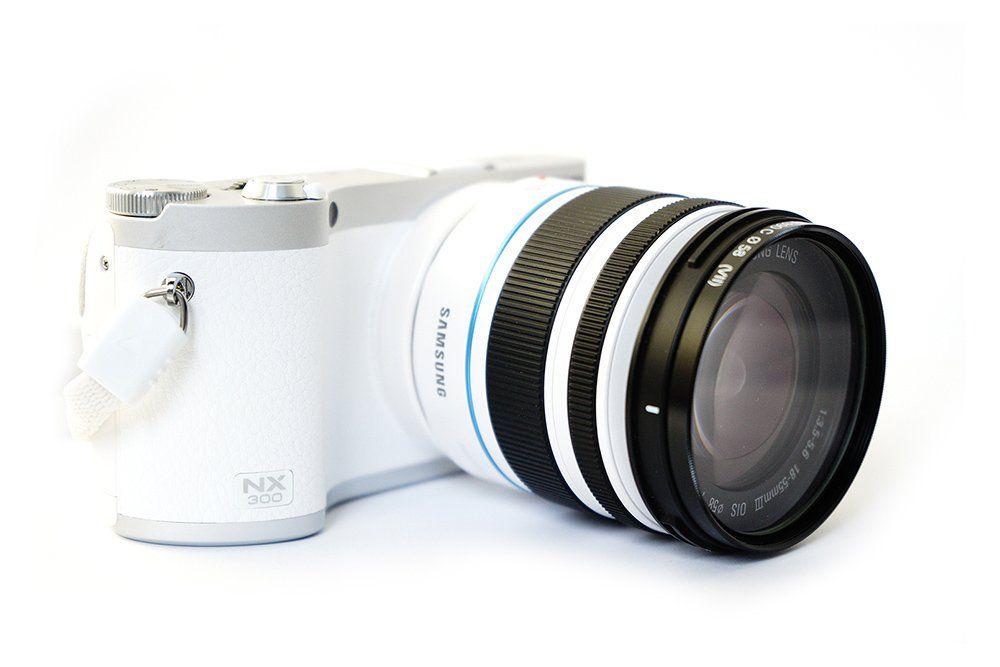
Paragraph title
Paragraph title
Write a bit more about your campaign here. Many people won’t get this far on your landing page, but if they do, have information here that they can use.
Paragraph title
Paragraph title
Write a bit more about your campaign here. Many people won’t get this far on your landing page, but if they do, have information here that they can use.
Get Started
Address: Street, City, County and Postcode
mymail@mailservice.com

